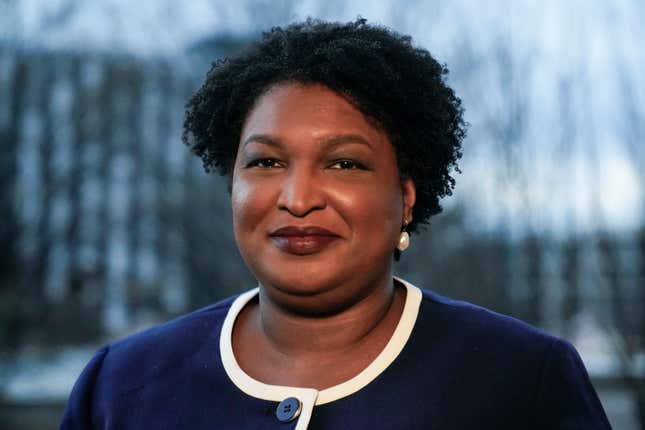
Stacey Abrams is making it clear: she didn’t skip President Joe Biden’s big voting rights speech in Georgia this week because she wasn’t invited to speak.
Biden delivered a forceful speech in Abrams’ home state on Wednesday, advocating for the passage of new voting rights legislation. His administration is under pressure to hold down Black voters, who propelled him into the White House and were promised action to protect their right to the ballot from Republican-sponsored bills to limit access to the ballot in Georgia and elsewhere.
The topic made Abrams’ absence almost as important as Biden’s speech. She’s the highest-profile Democrat in a swing state, was once considered a potential Biden running mate, is running for governor on this year’s ballot and has built an enormous fundraising apparatus on the back of her voter registration efforts since 2018. So when the president comes to talk about voting rights and Stacey Abrams doesn’t show up, people start asking: what’s wrong?
Abrams didn’t directly answer that question but her team was quick to shoot down what they called a false narrative around her absence.
Abrams spokesman Seth Bringman said Wednesday that “unnamed aides” in Washington anonymously promoted a falsehood published by several national outlets that the gubernatorial candidate bypassed the event Tuesday after she was refused a speaking slot.
“Stacey did not presume she would receive an invitation, nor did she or any member of our team ask for her to have a speaking spot at an event she could not attend,” Bringman said in a statement to The Atlanta Journal-Constitution.
Abrams hasn’t specified what led her to bypass Biden’s event, though Bringman on Wednesday said it was a private “commitment she could not break.” He said by the time a colleague was sent an invitation from the White House for Abrams to attend, her plans were already set.
Biden had set an artificial deadline of the MLK holiday, Jan. 17, for Congress to act on a voting rights bill. On Wednesday, the House passed a package that combined voting rights proposals put together by Democrats on both sides of Congress but it faces little chance of passing the Senate, where a battle over the use of the filibuster could be looming.

